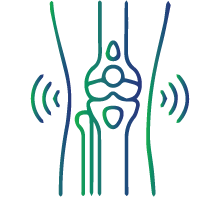
Anti-CCP Test
About Anti-CCP test:
Our immune system helps produce proteins that fight foreign substances that cause diseases, such as viruses and bacteria. These proteins are termed antibodies and autoantibodies. Antibodies are the proteins that defend you against disease-causing foreign substances, whereas autoantibodies are the proteins that cause disease by attacking or destroying a person’s own healthy body cells. One such class of autoantibodies is CCP (cyclic citrullinated peptide) antibodies.
CCP antibodies or anti-CCP antibodies attack healthy tissues in the joints, causing symptoms of rheumatoid arthritis (RA). This anti-CCP antibody test looks for CCP antibodies in the blood. This test helps diagnose rheumatoid arthritis in people showing symptoms such as pain, swelling, redness of joints, etc.
This test is also known as anticitrullinated peptide antibody test, citrulline antibody, anti-CCP antibody test, and ACPA.
Symptoms of Rheumatoid arthritis

Joint pains

Stiffness in the joints (especially in the morning times)

Joint swelling

Fatigue

Low-grade fever

General feeling of discomfort
Who should get tested?
An anti-CCP test is indicated for people who are at risk for various kinds of bone and joint problems leading to arthritis. It is usually advised to individuals who are experiencing the following symptoms of RA:

Pain in the joints

Stiffness in the joints mostly in the morning

Mild or severe swelling of joints accompanied with

Mild or chronic fatigue

A low-grade fever on some day

Recurring or random pain
Preparation for test
No special preparations are required for the test. You are required to inform your healthcare provider about all your medications, and vitamin supplements, if any. You may also be required to stop taking certain substances for at least 8-10 hours before taking this test, as indicated by your healthcare provider.
Interpretation of results
Generally, the results of this test are given out as positive or negative.
Positive test results
Positive test results for Anti-CCP antibody test indicate that CCP antibodies were found in your blood sample.
Negative test results
Negative test results for Anti-CCP antibody test indicate that there were no CCP antibodies found in your blood sample.
The presence of disease is shown by two parameters–Anti-CCP antibody and rheumatoid factor (RF). Even if the Anti-CCP antibody test results show positive test results, the accuracy of the results may depend on RF as well as the physical examination of your joints by your healthcare provider.
The below box explains the impact of each test results on your disease activity.
|
Anti-CCP antibody |
Rheumatoid Factor |
Inference |
|
Positive |
Positive |
You are likely to have Rheumatoid arthritis (RA) |
|
Positive |
Negative |
You are likely in the early stages of RA |
|
Negative |
Negative |
No RA |
If you experience the symptoms and the test results are negative, your healthcare provider may need to do more tests to know what exactly is causing the symptoms.
FAQs
Are there any risks to Anti-CCP antibody test?
There is very little risk associated with this test. An Anti-CCP antibody test is a blood test wherein your healthcare provider will take a blood sample from a vein in your arm. You might feel a slight pain or bruise at the site of needle puncture, but the symptoms subside quickly
What is the turnaround time (TAT) for Anti-CCP antibody test?
It may take about 2-3 days to get the results of the anti-CCP antibody test. At times, it may take a little longer than usual
How does Anti-CCP Antibody test assist in tracking my rheumatoid arthritis?
An anti-CCP antibody test aids in monitoring your disease activity and how well the recommended treatments are working for you. This test aids in determining whether the body's production of inflammatory autoantibodies or CCP antibodies, which are the main contributors to the development of disease, has slowed down
Does anti-CCP antibody test requires fasting?
No, you do not need to go into a fasting state to take the anti-CCP antibody test. However, you must take a few precautions before going for this test, such as, if you are taking any pain medications or supplements, you must stop taking them at least for 8 to 10 hours before taking this test
I experience rheumatoid arthritis symptoms, but my test outcomes are negative. What does it mean?
The results of anti-CCP antibody tests are generally correlated with the results of rheumatoid factor (RF) tests. Therefore, it is advised to take the RF test along with the anti-CCP antibody test. However, in comparison to RF, the anti-CCP antibody test is a better indicator of a more aggressive rheumatoid arthritis disease course. Taking results concurrently, however, provides stronger evidence of disease presence

